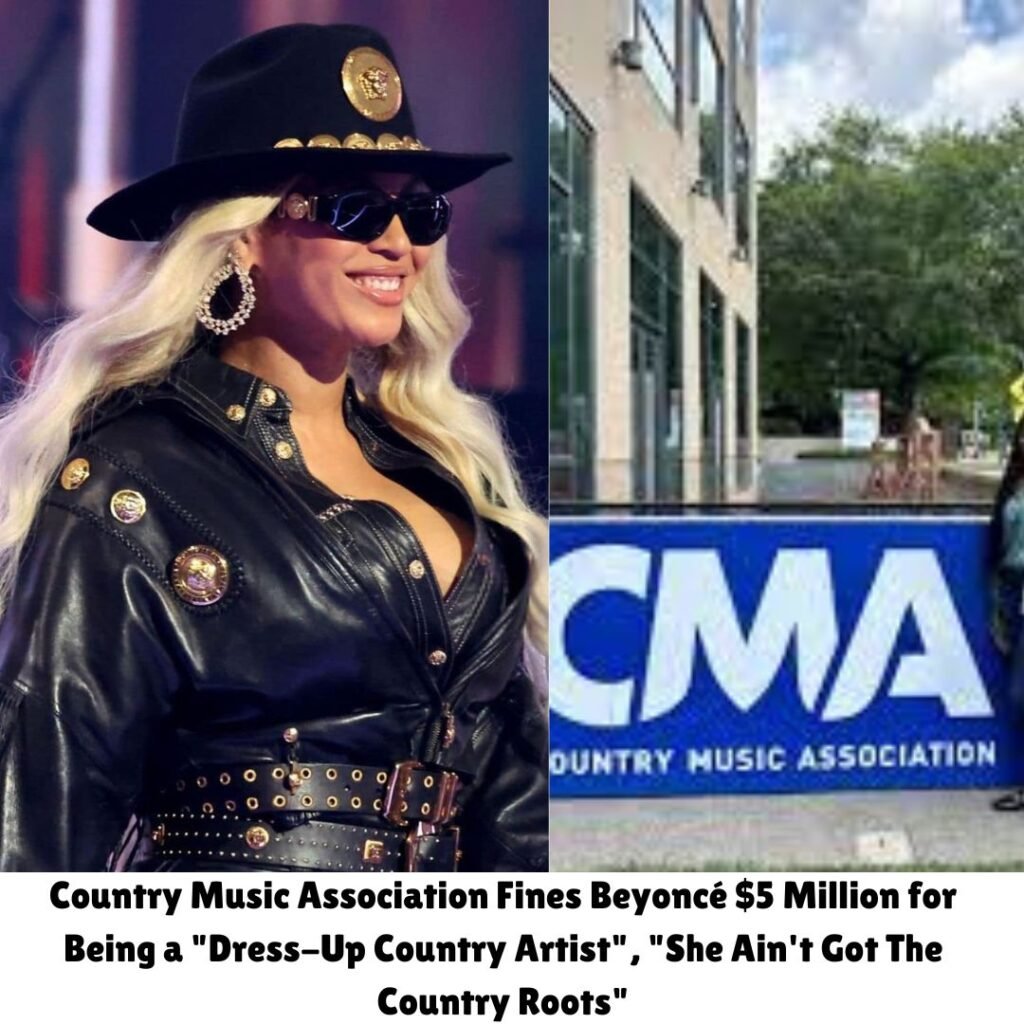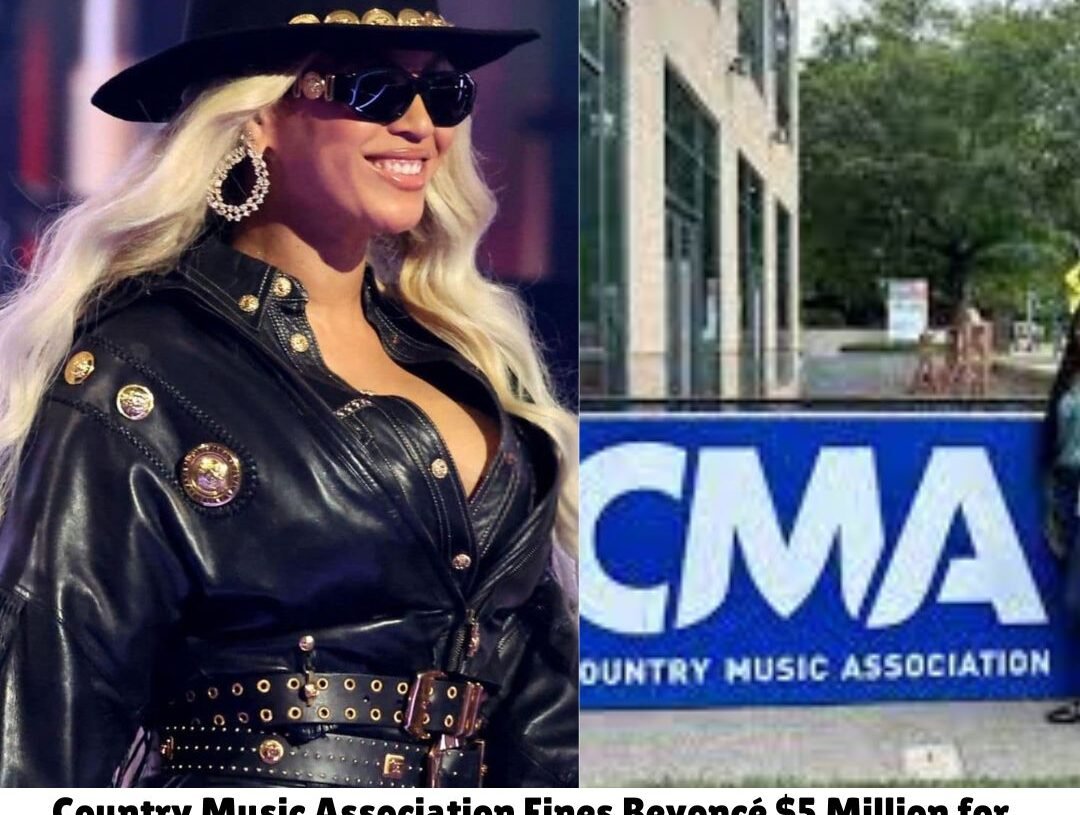In an unexpected development, the Country Music Association (CMA) has imposed a substantial fine of $5 million on Beyoncé for her alleged attempt to present herself as a country artist. The decision comes amidst increasing skepticism within the country music community regarding Beyoncé’s recent exploration of the genre with her “Cowboy Carter” persona.
Beyoncé, renowned globally for her accomplishments in pop and R&B music, drew attention when she introduced her new persona as “Cowboy Carter” and released her country-themed album under the same name. The album, titled “Cowboy Carter,” represented a departure from Beyoncé’s usual genre and style, incorporating elements of country music.
The launch of “Cowboy Carter” elicited both enthusiasm and controversy. While some fans praised Beyoncé’s daring experimentation with a new genre, others criticized the move as cultural appropriation and an attempt to exploit the popularity of country music.
The CMA’s decision to penalize Beyoncé reflects broader discussions within the country music industry about authenticity and reverence for musical traditions. Country music has deep roots in American culture, boasting a rich heritage encompassing storytelling, folk influences, and regional identities.
Critics contend that Beyoncé’s portrayal of a country artist is superficial and lacks the depth and authenticity synonymous with the genre. The CMA, representing the country music industry, interprets Beyoncé’s actions as disrespectful to the genre’s heritage and traditions.
The fine imposed on Beyoncé underscores the association’s dedication to preserving the integrity of country music. By penalizing Beyoncé for her alleged misrepresentation of the genre, the CMA aims to uphold standards of authenticity and respect within the music industry.

For Beyoncé, the CMA’s fine signifies a significant setback in her attempts to diversify her musical repertoire. While the pop icon has achieved immense success in other genres, her endeavor to enter the country music scene has been met with doubt and criticism.
The fine may also impact Beyoncé’s standing within the country music community and her ability to collaborate with industry insiders. Country music artists and fans may view Beyoncé’s actions skeptically, questioning her motives and dedication to the genre.
Beyond Beyoncé, the CMA’s decision underscores broader debates within the music industry about cultural appropriation and the boundaries of artistic expression. As artists increasingly experiment with different genres and styles, questions of authenticity and respect for musical traditions remain central to discussions about artistic integrity.
The controversy surrounding Beyoncé’s country music venture serves as a reminder of the complexities inherent in the intersection of music and identity. As artists explore new creative territories, they must navigate the delicate balance between innovation and cultural sensitivity.
Beyoncé’s exploration of country music raises broader questions about authenticity in artistic expression. While artists are encouraged to push boundaries and challenge conventions, they must do so with an understanding of the cultural contexts and histories they are engaging with.
Despite the controversy surrounding “Cowboy Carter,” Beyoncé’s country-themed album has sparked important conversations about representation and appropriation in the music industry. The release of “Cowboy Carter” has prompted artists, critics, and fans to contemplate the complexities of genre, identity, and artistic ownership.
As Beyoncé evolves as an artist, the repercussions of the CMA’s decision will undoubtedly shape her future endeavors and influence broader discussions about the role of authenticity in music. The fine serves as a cautionary tale for artists exploring new genres, emphasizing the need for sensitivity and awareness when engaging with cultural traditions.
Ultimately, the controversy surrounding Beyoncé’s country music venture highlights the necessity for ongoing dialogue and reflection within the music industry. By addressing questions of authenticity and respect, artists can contribute to a more inclusive and culturally aware music landscape. As Beyoncé navigates the aftermath of the CMA’s fine, her experiences will serve as a catalyst for deeper engagement with the complexities of musical identity and representation.
